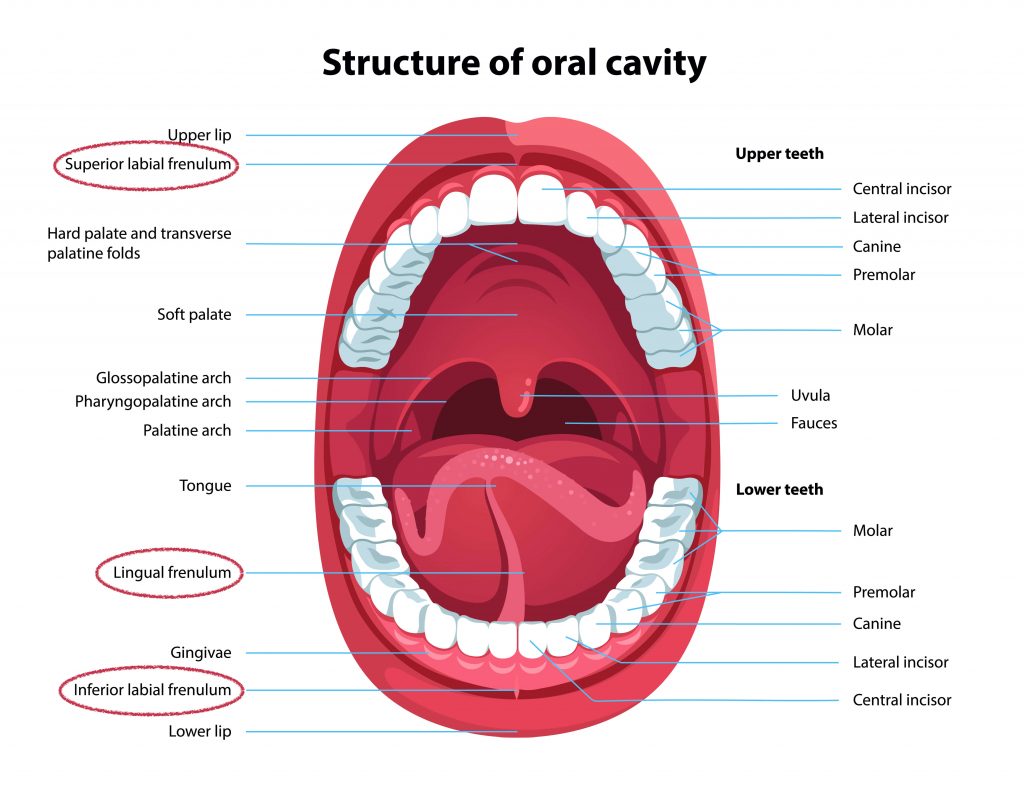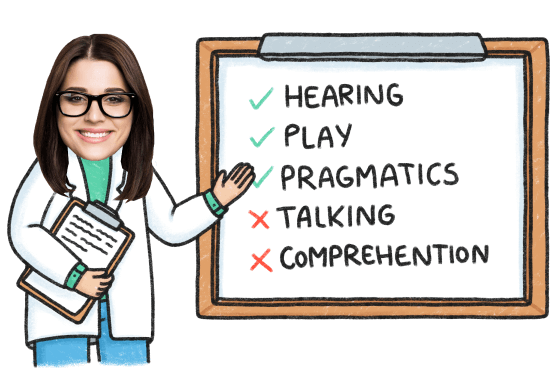Speech Therapy and Frenectomies
Jan 15, 2022 A couple of years after my son ended his speech therapy a dentist suggested a frenectomy, he had it done but his speech sounds the same. Would speech therapy make a difference now that he has more mobility of his tongue?
First things first, a lot of people might not be aware of what a frenectomy entails. Frenectomy is a simple oral surgical procedure that eliminates the presence of a frenum in the mouth. A frenum is a muscular attachment between two tissues found inside of the cheeks and lips and inside the mouth and gums. There are two kinds of frenum in the mouth, the labial frenum and the lingual frenum (Academy of Pediatric Dentistry).

A labial frenum is a muscular tissue that connects the inside of the upper lip to the center of the gums between the two upper front teeth. The presence of this frenum creates a large gap between the two upper front teeth and can also cause recession of the gums by drawing the gums off the jaw bone. Usually, dentists will advise their patients to wait for the growth of their two permanent upper front teeth before considering the treatment for labial frenum.
Labial frenectomy is only performed if the braces are unable to correct the large gaps caused by labial frenum.

The second kind of frenum is called lingual frenum. It is a muscular tissue that connects the bottom center of the tongue to the floor of the mouth. Lingual frenum that extends all the way to the tip of the tongue can sometimes restrict the patient from eating and speaking properly. This condition is also called ‘tongue tied’. Lingual frenectomy is only performed if the presence of frenum prevents the child from eating and speaking properly, however it is the most common type of frenectomy that is performed.
Benefits of Frenectomy
Labial frenectomy:
- It reduces oral discomfort.
- It improves facial appearance through the elimination of tooth gap between the two upper front teeth.
- It promotes self-confidence.
- It enhances bite function.
- It stabilizes dentures among denture users.
Lingual frenectomy:
- It enhances communication and expression of oneself.
- It improves appetite because patient can eat properly.
Boost Your Child’s Speech Development!
Improve language & communication skills with fun learning!

In regards to this question – absolutely! Any time a child has had surgery on a part of their body that could affect their speech, they should be re-enrolled in speech therapy. Remember, if he was used to using his tongue in a modified way, he never had the experience of using his tongue in the way that would make his speech more intelligible.
Odds are that he won’t be enrolled into speech therapy for very long, but it’s still a good idea to get him re-evaluated. If he is school aged, you should be able to request an evaluation through the school system. There is a small chance that he will not qualify for speech in the school system if the speech errors are not severe enough. When this occurs, I encourage families to look into private speech therapy because they are less bound by standardized testing scores.
Have a question for our Speech Therapists?

